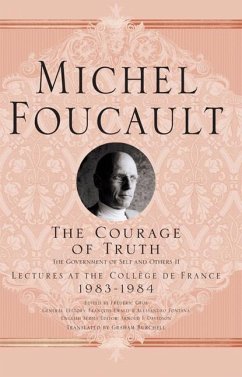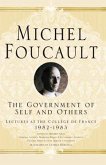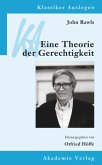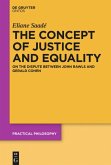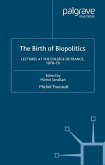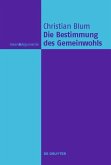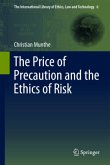The course given by Michel Foucault from February to March 1984, under the title The Courage of Truth , was his last at the Collège de France. His death shortly after, on June 25th, tempts us to detect a philosophical testament in these lectures, especially in view of the prominence they give to the theme of death, notably through a reinterpretation of Socrates' last words 'Crito, we owe a cock to Asclepius' which, with Georges Dumézil, Foucault understands as the expression of a profound gratitude towards philosophy for its cure of the only serious illness: that of false opinions and prejudices. These lectures continue and radicalize the analyses of those of the previous year. Foucault's 1983 lectures investigated the function of 'truth telling' in politics in order to establish courage and conviction as ethical conditions for democracy irreducible to the formal rules of consensus. With the Cynics, this manifestation of the truth no longer appears simply as a risky speaking out,but in the very substance of existence. In fact, Foucault offers an incisive study of ancient Cynicism as practical philosophy, athleticism of the truth, public provocation, and ascetic sovereignty. The scandal of the true life is constructed in opposition to Platonism and its world of transcendent intelligible Forms.
'There is no establishment of the truth without an essential position of otherness. The truth is never the same. There can be truth only in the form of the other world and the other life.'
'There is no establishment of the truth without an essential position of otherness. The truth is never the same. There can be truth only in the form of the other world and the other life.'
'In this, the final year of his lectures at the College de France, Michel Foucault reaches more deeply into the foundations of Western thought than ever. Emphasizing parrhesia, the ancient practice of speaking truth to power, he shows how it is a practice of the care of the self, and in so doing, demonstrates how the dictum 'know oneself' is only a part of our philosophical inheritance. This is an astonishing conclusion to the life's work of one of the twentieth century's greatest thinkers.' - Thomas Dumm, Amherst College, USA
'In his powerful final course of lectures, expertly edited by Frédéric Gros and sympathetically translated by Graham Burchell, Foucault provides an explicitly political focus to his work on parrhesia. He offers readings of a range of texts, of which those of the Apology and the Cynics are especially insightful. It is impossible to read these lectures without an eye to the links between his work and his life, but Foucault's focus remains on the materialat hand and his long-running interest in the interrelations of truth, power and the subject.' - Stuart Elden, Durham University, UK
'In his powerful final course of lectures, expertly edited by Frédéric Gros and sympathetically translated by Graham Burchell, Foucault provides an explicitly political focus to his work on parrhesia. He offers readings of a range of texts, of which those of the Apology and the Cynics are especially insightful. It is impossible to read these lectures without an eye to the links between his work and his life, but Foucault's focus remains on the materialat hand and his long-running interest in the interrelations of truth, power and the subject.' - Stuart Elden, Durham University, UK

